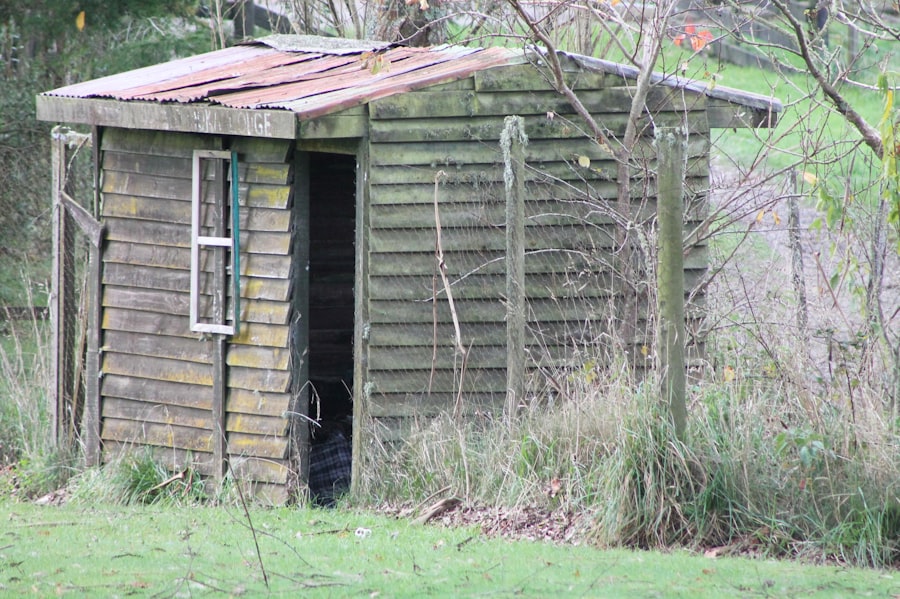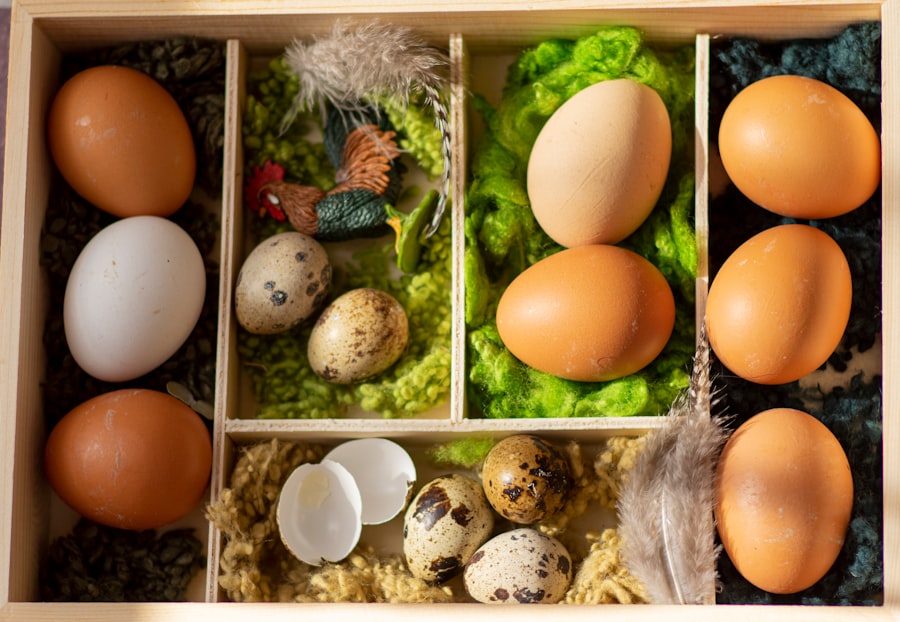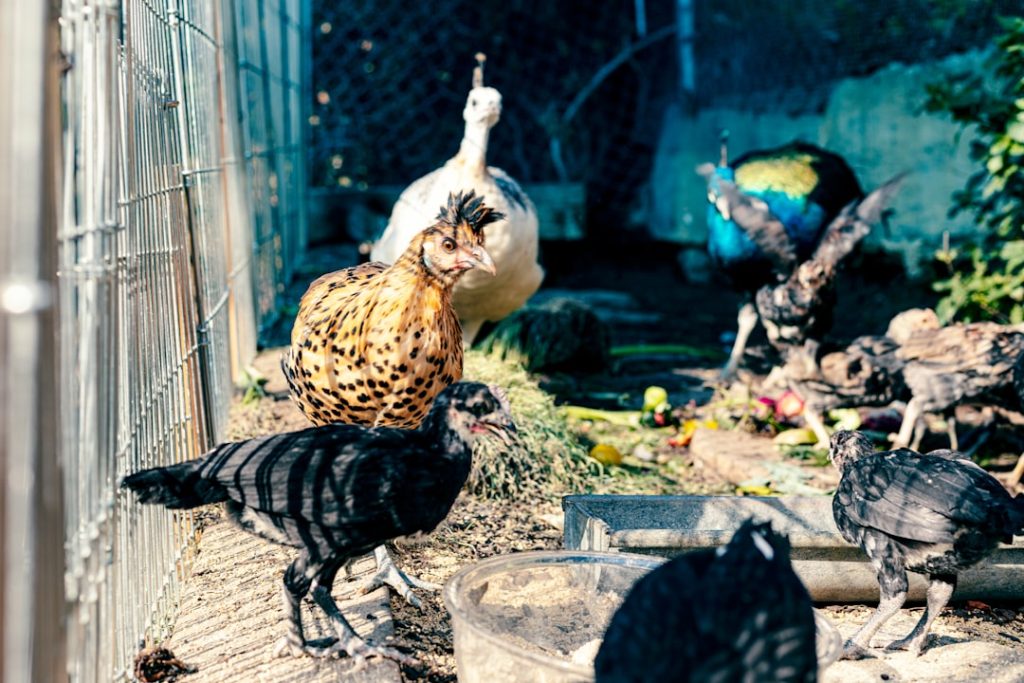Indoor chicken keeping is a viable option for poultry enthusiasts, particularly those in urban areas with limited outdoor space or regions with significant predator concerns. This approach offers a controlled environment, facilitating easier access for feeding, cleaning, and health monitoring. With proper setup and care, chickens can adapt well to indoor living, continuing to provide fresh eggs and companionship.
However, indoor chicken keeping requires careful consideration of specific needs. Adequate ventilation, regular cleaning, and sufficient space are crucial factors. While indoor environments offer protection from predators and harsh weather, they may limit natural behaviors.
Therefore, it’s essential to provide opportunities for exercise and mental stimulation to ensure the chickens’ well-being. When evaluating indoor chicken keeping, one must balance the benefits of increased protection and convenience against the challenges of maintaining a suitable indoor environment. This includes managing air quality, controlling odors, and replicating aspects of the outdoor environment.
While chickens are naturally outdoor animals, with proper care and attention to their needs, indoor keeping can be a successful and rewarding experience for both the chickens and their caretakers.
Table of Contents
- 1 The Ideal Timeframe for Keeping Chickens Inside
- 2 Factors to Consider When Keeping Chickens Inside
- 3 Tips for Keeping Chickens Happy and Healthy Inside
- 4 Signs that Your Chickens are Ready to Go Outside
- 5 Transitioning Chickens from Inside to Outside
- 6 Balancing Safety and Freedom for Your Chickens
- 7 FAQs
- 7.1 What is the recommended age for letting chickens outside?
- 7.2 How long should chickens be kept inside before being let outside?
- 7.3 What factors should be considered before letting chickens outside?
- 7.4 What are the benefits of letting chickens outside?
- 7.5 Are there any risks to letting chickens outside?
Key Takeaways
- Keeping chickens inside can be a practical option for urban or small space dwellers
- The ideal timeframe for keeping chickens inside is during extreme weather conditions or when they are young and vulnerable
- Factors to consider when keeping chickens inside include space, ventilation, and cleanliness
- Tips for keeping chickens happy and healthy inside include providing proper nutrition, entertainment, and social interaction
- Signs that your chickens are ready to go outside include increased activity, feather growth, and vocalization
- Transitioning chickens from inside to outside should be done gradually to allow them to acclimate to the outdoor environment
- Balancing safety and freedom for your chickens is essential for their well-being and happiness
The Ideal Timeframe for Keeping Chickens Inside
Factors Influencing Indoor Chicken Keeping
The ideal timeframe for keeping chickens inside can vary depending on the specific circumstances and needs of your flock. In general, keeping chickens inside may be necessary during certain times of the year, such as during extreme weather conditions or when predators are particularly active. Additionally, if you are raising young chicks, keeping them inside until they are old enough to safely navigate outdoor environments may be necessary.
Considering Your Chickens’ Needs and Local Environment
It’s important to consider the specific needs of your chickens and the conditions of your local environment when determining the ideal timeframe for indoor chicken keeping. In some cases, keeping chickens inside may be a temporary measure, while in other situations it may be a more permanent arrangement. For example, if you live in an urban area with limited outdoor space, you may need to keep your chickens inside on a long-term basis.
Temporary vs. Long-Term Indoor Keeping
On the other hand, if you are protecting your chickens from extreme weather or predators, indoor keeping may only be necessary for a short period of time. Ultimately, the ideal timeframe for keeping chickens inside will depend on your specific circumstances and the needs of your flock.
Factors to Consider When Keeping Chickens Inside

When keeping chickens inside, there are several important factors to consider to ensure the health and well-being of your flock. One of the most critical factors is ventilation. Proper ventilation is essential for maintaining good air quality and preventing respiratory issues in chickens.
This can be achieved through the use of windows, vents, and fans to ensure a constant flow of fresh air. Additionally, maintaining a clean living environment is crucial for indoor chicken keeping. Regular cleaning of bedding, coop surfaces, and nesting areas is essential for preventing the buildup of bacteria and parasites that can harm your chickens.
Another important factor to consider when keeping chickens inside is space requirements. Chickens need ample space to move around, stretch their wings, and engage in natural behaviors such as scratching and dust bathing. Providing enough space for your chickens will help prevent stress and aggression within the flock.
Additionally, it’s important to provide enrichment activities to keep your chickens mentally stimulated while indoors. This can include providing perches, toys, and access to outdoor views to prevent boredom and encourage natural behaviors.
Tips for Keeping Chickens Happy and Healthy Inside
Keeping chickens happy and healthy inside requires careful attention to their physical and psychological needs. One important tip is to provide a balanced diet that meets the nutritional requirements of your flock. This can include a combination of commercial feed, fresh fruits and vegetables, and access to grit for digestion.
Additionally, providing clean water at all times is essential for maintaining the health of your chickens. Another tip for keeping chickens happy and healthy inside is to provide opportunities for exercise and mental stimulation. This can include providing perches at different heights, hanging toys for pecking and playing, and access to natural light and outdoor views.
Additionally, allowing your chickens time outside of their coop in a safe and supervised environment can provide them with much-needed exercise and mental enrichment. Regular monitoring of your chickens’ health is also crucial for indoor chicken keeping. This includes observing their behavior, checking for signs of illness or injury, and maintaining regular veterinary care.
By staying attentive to the needs of your flock, you can ensure that they remain happy and healthy while living indoors.
Signs that Your Chickens are Ready to Go Outside
As much as indoor chicken keeping can provide safety and convenience, it’s important to recognize when your chickens are ready to go outside. One sign that your chickens are ready to go outside is when they become restless or agitated in their indoor environment. Chickens are naturally outdoor animals and may become stressed or bored when confined indoors for extended periods of time.
Additionally, if your chickens start exhibiting natural behaviors such as scratching at the ground or attempting to fly within their indoor space, this may be a sign that they are ready for more freedom outdoors. Another sign that your chickens are ready to go outside is when they have reached a certain level of maturity and resilience. Young chicks may need to be kept indoors until they are old enough to safely navigate outdoor environments and defend themselves against predators.
Once your chickens have reached a certain age and size, they may be better equipped to handle the challenges of outdoor living.
Transitioning Chickens from Inside to Outside

Gradual Acclimation
When transitioning chickens from inside to outside, it’s essential to do so gradually to minimize stress and ensure their safety. One approach is to start by allowing your chickens supervised access to an outdoor run or enclosed area during the day while still returning them indoors at night. This can help them acclimate to the sights, sounds, and smells of the outdoors while still providing them with the security of their indoor coop at night.
Increasing Outdoor Time
Another approach is to gradually increase the amount of time your chickens spend outdoors each day until they are fully acclimated to outdoor living. This can involve gradually expanding their outdoor enclosure or allowing them access to larger outdoor areas over time.
Minimizing Stress and Injury
By taking a gradual approach to transitioning your chickens from inside to outside, you can help them adjust to their new environment while minimizing the risk of stress or injury. This careful approach ensures a smooth transition for your chickens, allowing them to thrive in their new outdoor surroundings.
Balancing Safety and Freedom for Your Chickens
In conclusion, keeping chickens inside can be a practical option for providing safety and convenience for your flock. However, it’s important to carefully consider the specific needs of your chickens and provide them with a comfortable and stimulating indoor environment. By paying attention to factors such as ventilation, cleanliness, space requirements, and enrichment activities, you can ensure that your chickens remain happy and healthy while living indoors.
It’s also important to recognize when your chickens are ready to go outside and to transition them gradually to outdoor living to minimize stress and ensure their safety. By balancing safety and freedom for your chickens, you can provide them with the best possible quality of life while enjoying the benefits of fresh eggs and companionship. Whether you choose to keep your chickens inside on a temporary or permanent basis, with the right care and attention, indoor chicken keeping can be a rewarding experience for both you and your feathered friends.
If you’re wondering how long you have to keep chickens inside, you may also be interested in learning about how to insulate a chicken coop. Insulating your coop can help regulate the temperature and keep your chickens comfortable during colder months. Check out this article for tips on how to properly insulate your chicken coop.
FAQs
What is the recommended age for letting chickens outside?
The recommended age for letting chickens outside is around 6-8 weeks old. At this age, they are better equipped to handle the outdoor environment and have developed their feathers for better insulation.
How long should chickens be kept inside before being let outside?
Chickens should be kept inside for about 6-8 weeks before being let outside. This allows them to grow and develop properly before being exposed to the outdoor environment.
What factors should be considered before letting chickens outside?
Before letting chickens outside, factors such as weather, predator protection, and the availability of food and water should be considered. It’s important to ensure that the outdoor environment is safe and suitable for the chickens.
What are the benefits of letting chickens outside?
Letting chickens outside allows them to engage in natural behaviors such as scratching, pecking, and dust bathing. It also provides them with access to fresh air, sunlight, and a more varied diet from foraging.
Are there any risks to letting chickens outside?
There are risks to letting chickens outside, including exposure to predators, extreme weather, and potential diseases from wild birds. It’s important to take precautions to minimize these risks, such as providing secure housing and regular health checks.
Meet Walter, the feathered-friend fanatic of Florida! Nestled in the sunshine state, Walter struts through life with his feathered companions, clucking his way to happiness. With a coop that’s fancier than a five-star hotel, he’s the Don Juan of the chicken world. When he’s not teaching his hens to do the cha-cha, you’ll find him in a heated debate with his prized rooster, Sir Clucks-a-Lot. Walter’s poultry passion is no yolk; he’s the sunny-side-up guy you never knew you needed in your flock of friends!







